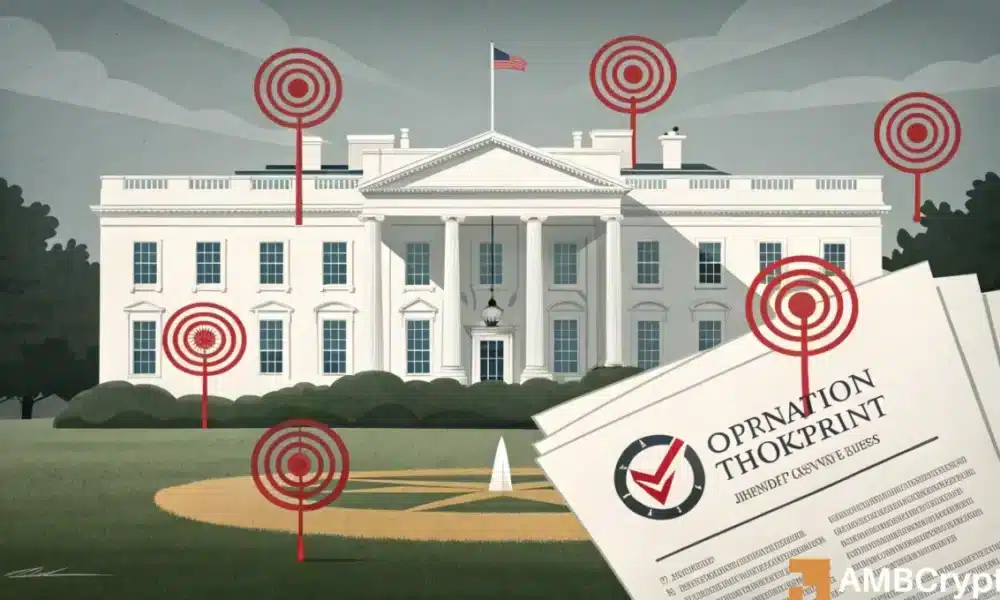Key Takeaways
Banks may soon face penalties for politically motivated financial restrictions, particularly against crypto firms, as the White House’s upcoming order could reshape institutional behavior in the digital asset space.
The White House is reportedly preparing to strike down discriminatory banking practices, long criticized as “Operation Chokepoint 3.0.”
For context, this is a controversial banking trend where financial institutions are accused of denying services to politically disfavored sectors, particularly digital asset firms.
Will Operation Chokepoint 3.0 come to an end?
According to a draft executive order reviewed by Reuters, the Trump administration is considering enforcement measures.
These would penalize banks found making ideologically driven decisions that violate the Equal Credit Opportunity Act, antitrust laws, or consumer protection rules.
Paul Barron emphasized that banks found guilty of such conduct may be fined.


Source: X
This comes at a time when incidents like JPMorgan’s alleged decision to freeze Gemini’s re-onboarding process, reportedly triggered by Tyler Winklevoss’ public criticism, have reignited debate over fairness and access in the banking sector.
Expressing his stance, Binance founder Changpeng Zhao took to X and noted,
“It used to be that corresponding banks in the US block transactions involving crypto (fiat for buying crypto). This opens banking for crypto internationally.”
When did the crypto curbing start?
The roots of this crackdown trace back to what many called “Operation Chokepoint 2.0.”
Since 2021, crypto firms claim they’ve faced targeted de-banking from institutions like JPMorgan and Bank of America.
Industry leaders like Elon Musk and Ripple CTO David Schwartz have openly criticized the trend, with Schwartz labeling it as a form of indirect government regulation.
More recently, Alex Rampell, General Partner at Andreessen Horowitz, also pointed out that while previous chokepoints may have been regulator-driven, the current wave appears to stem from the banks themselves, raising fresh concerns about fairness and institutional bias.
Banks are denying such accusations
Despite widespread criticism, major banks deny acting out of political motivations. But with rising pressure from conservative policymakers and crypto advocates, the Trump administration is now moving fast.
The draft order could mark a significant reversal, reaffirming ideological neutrality in the financial system and potentially dismantling Operation Chokepoint 3.0 for good.







